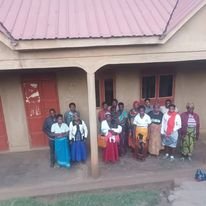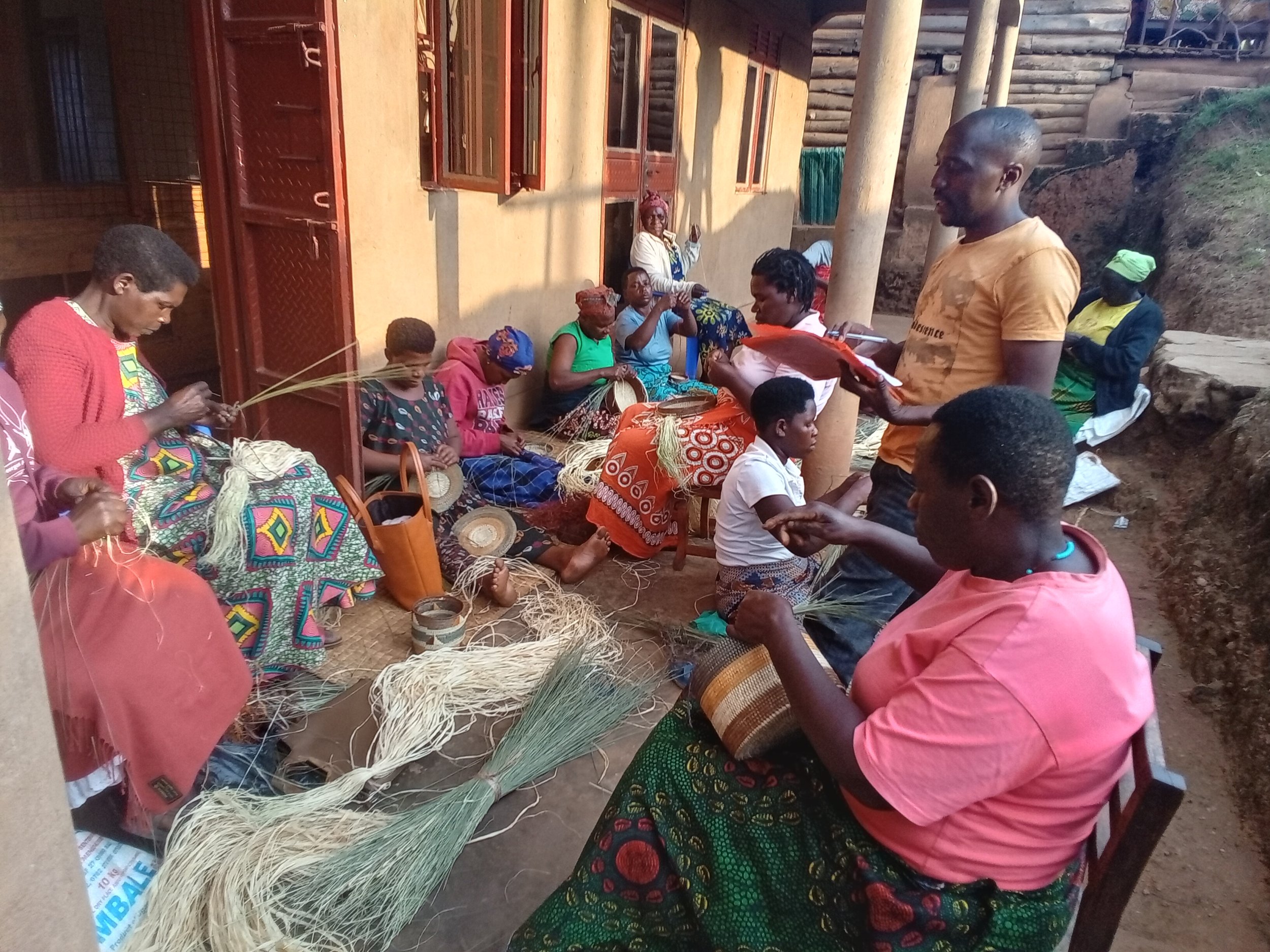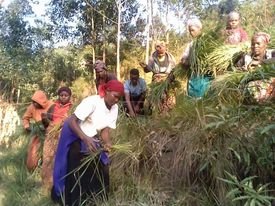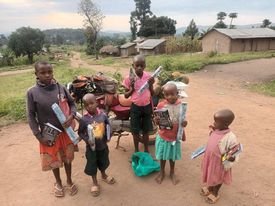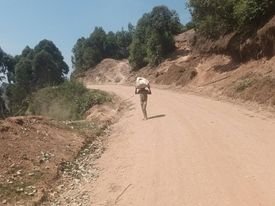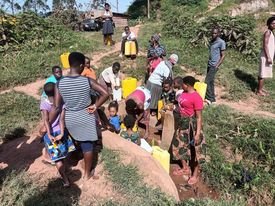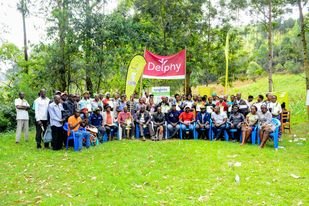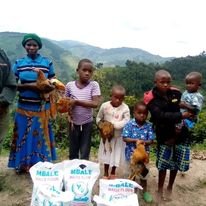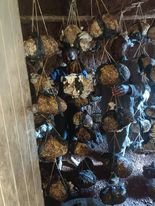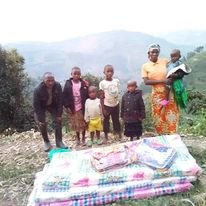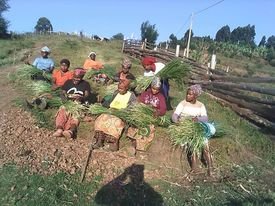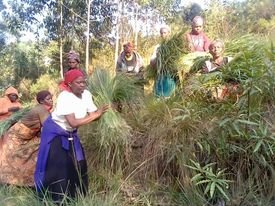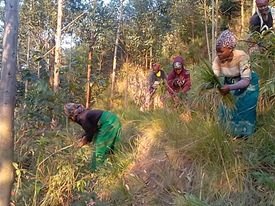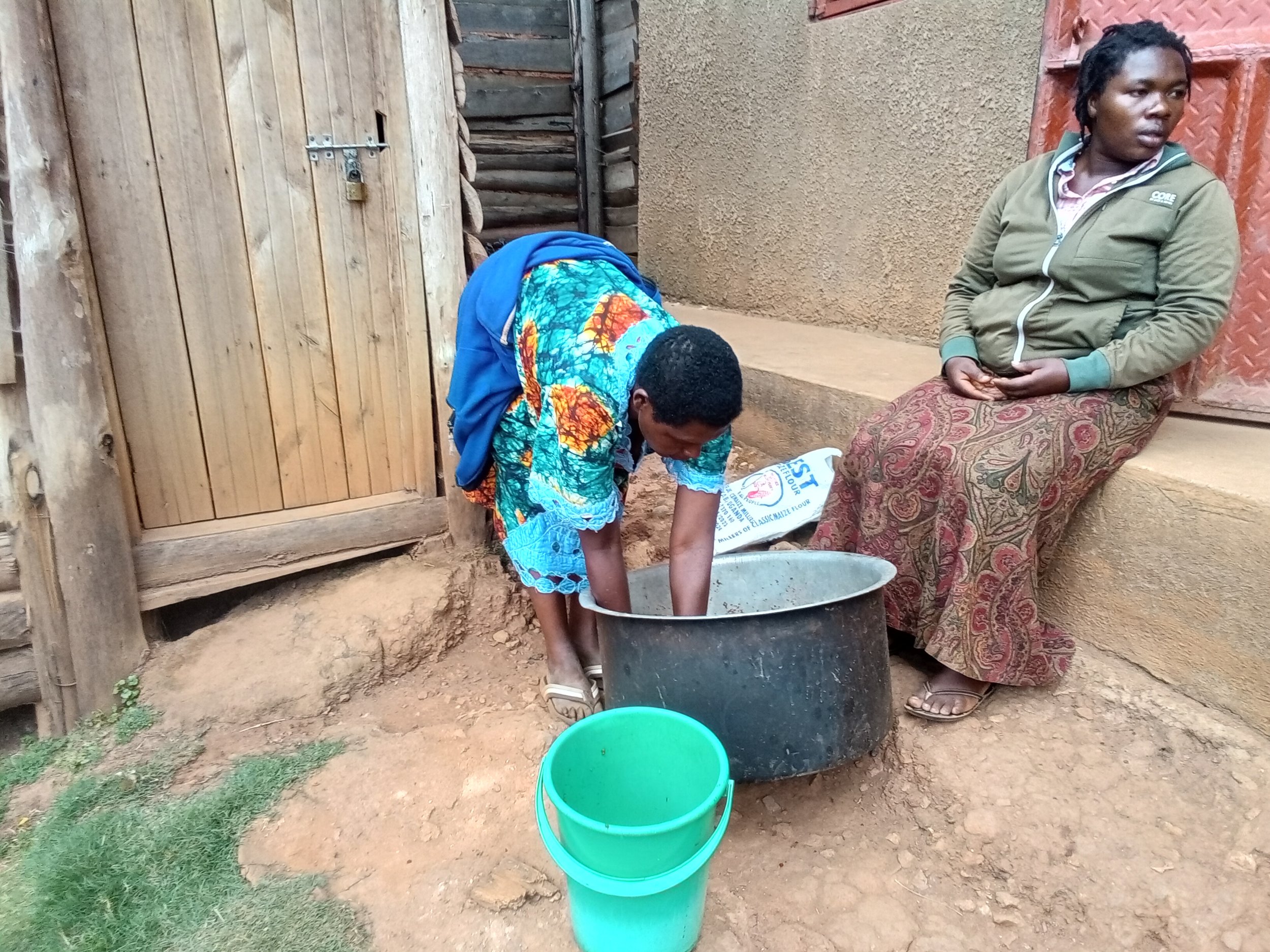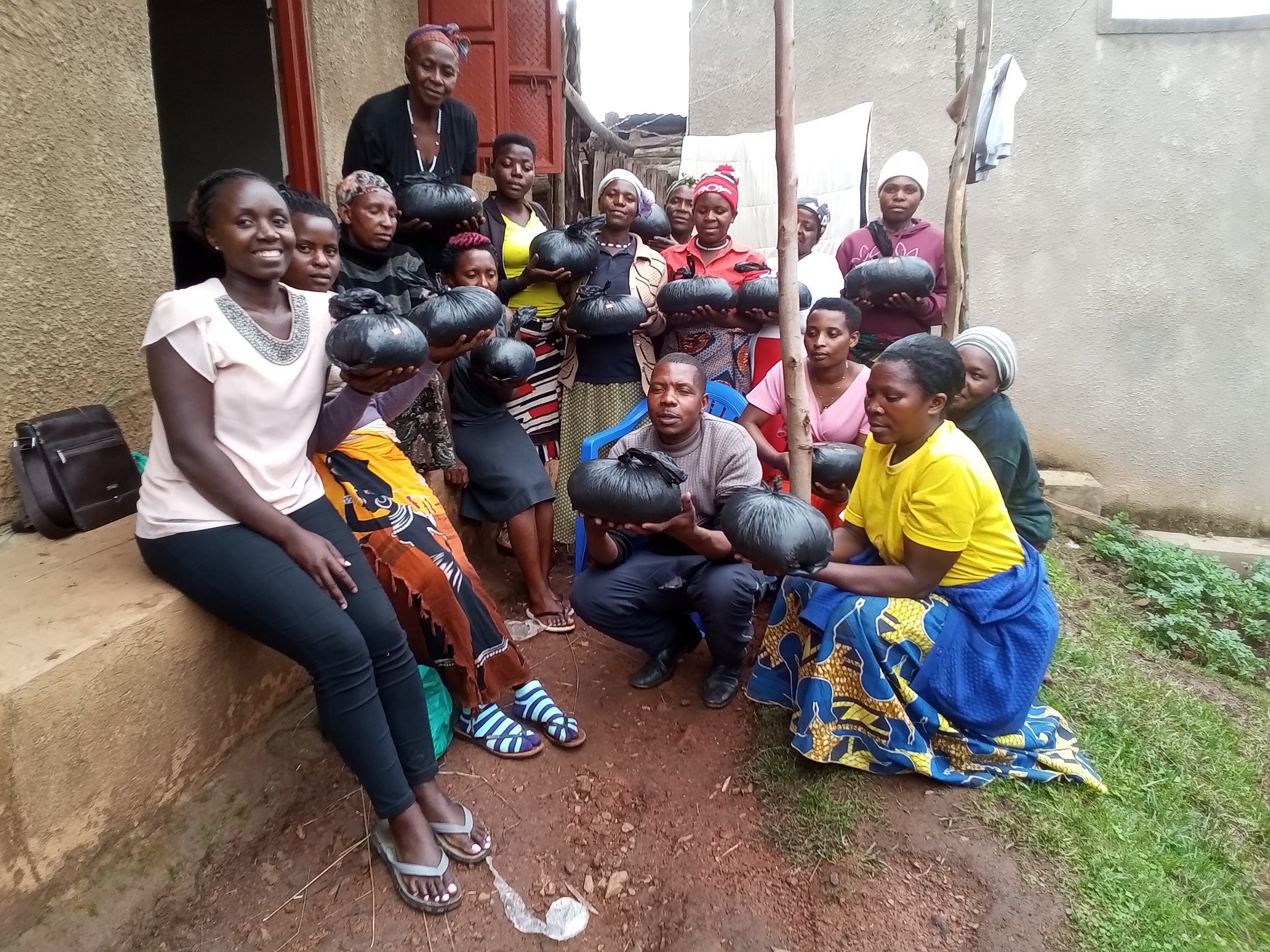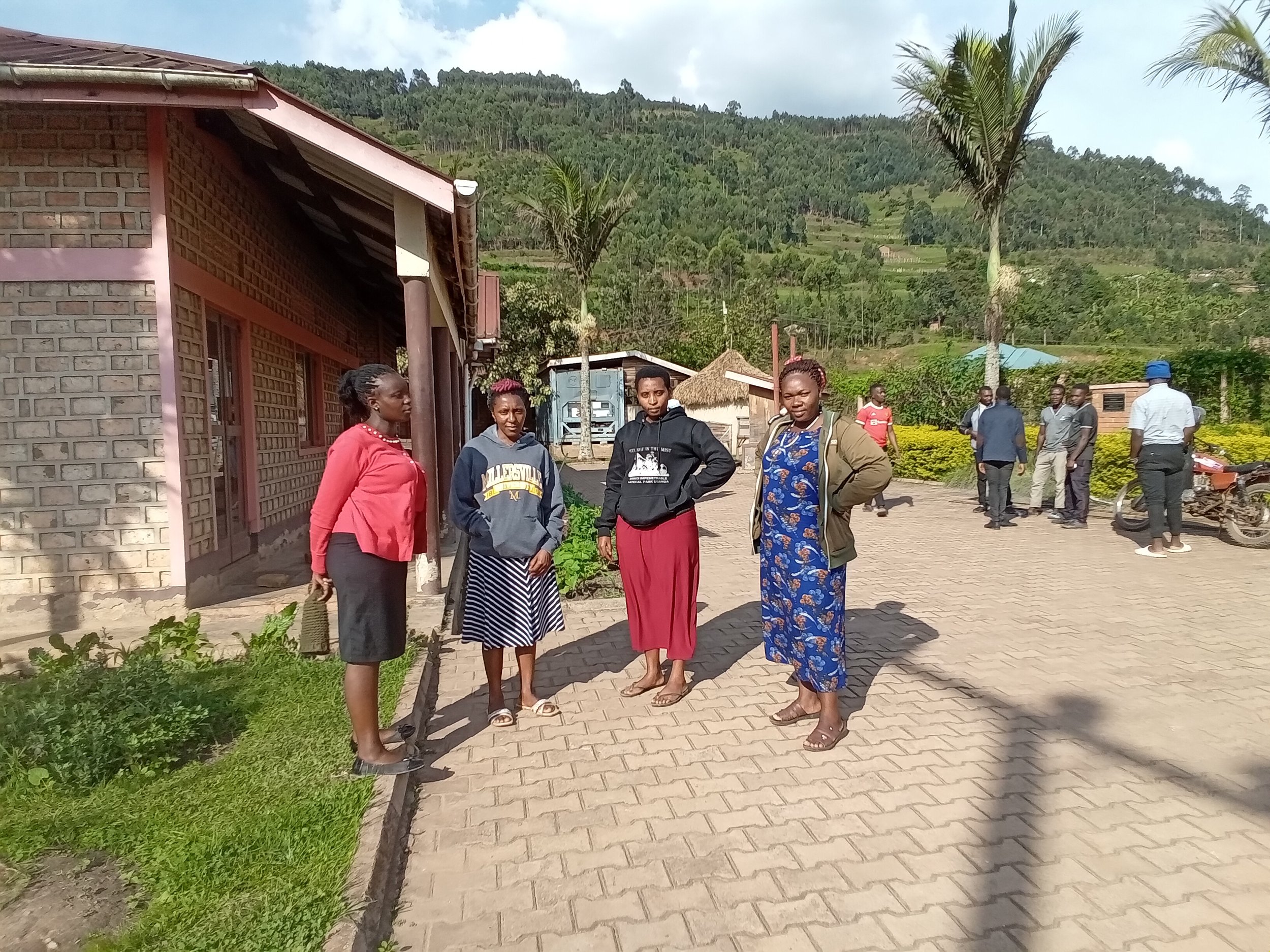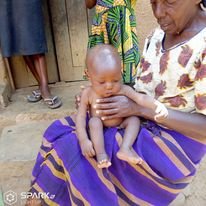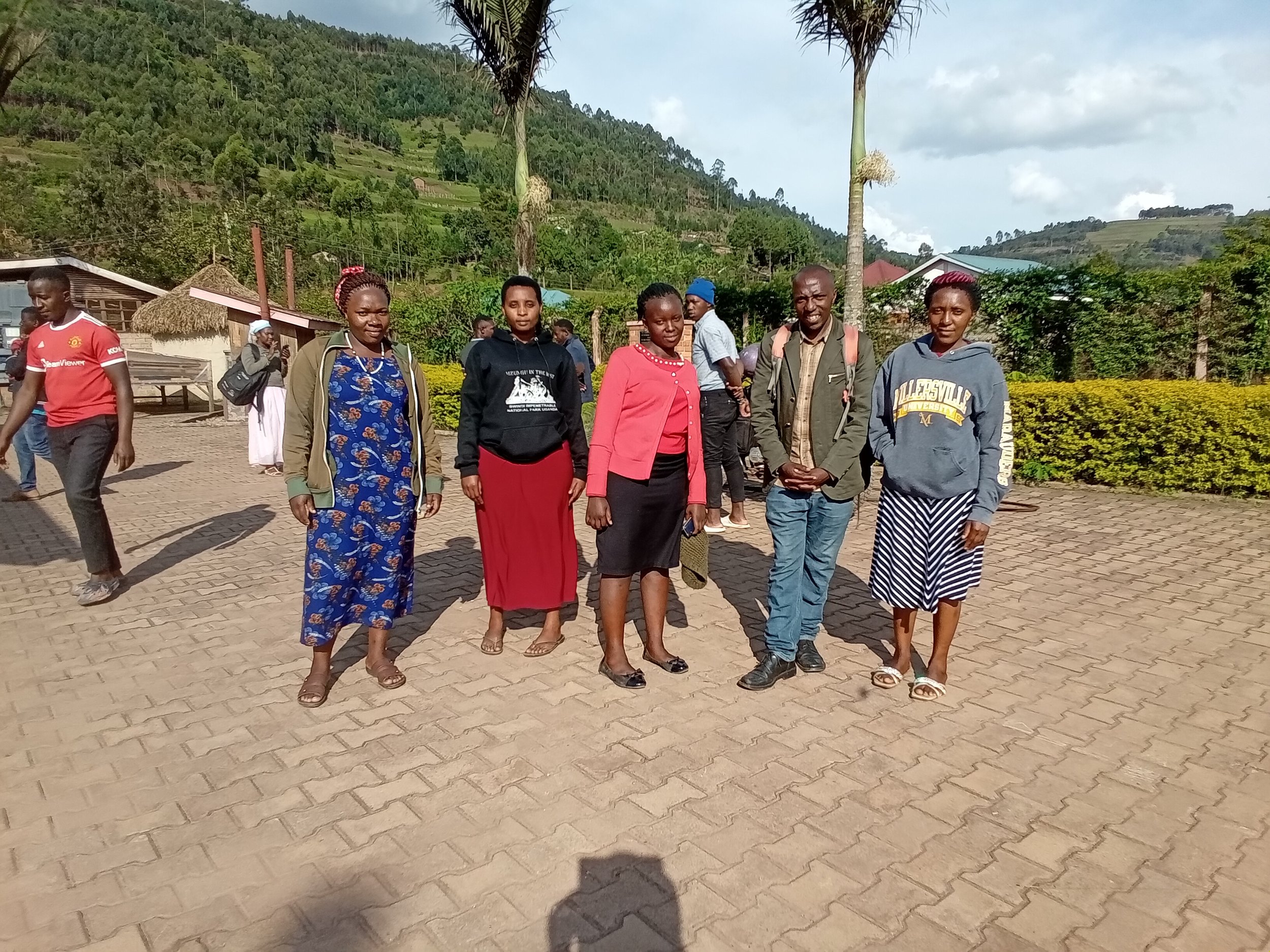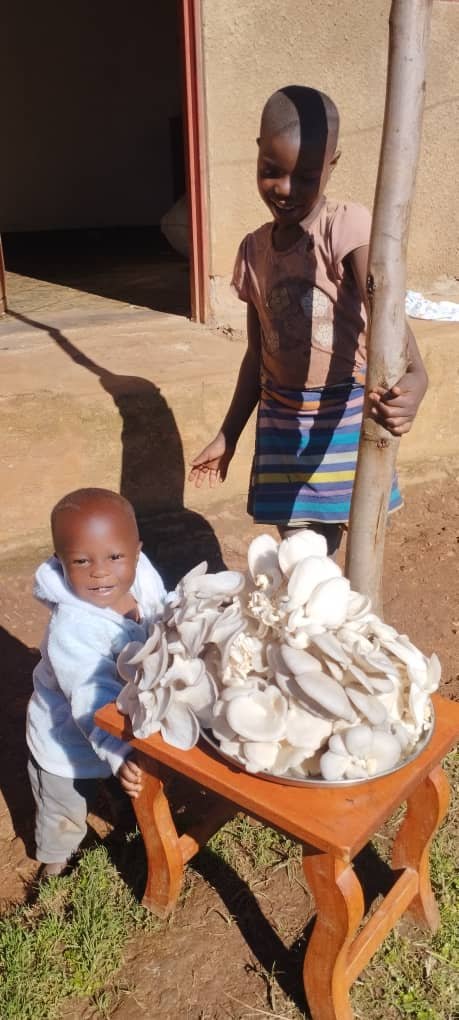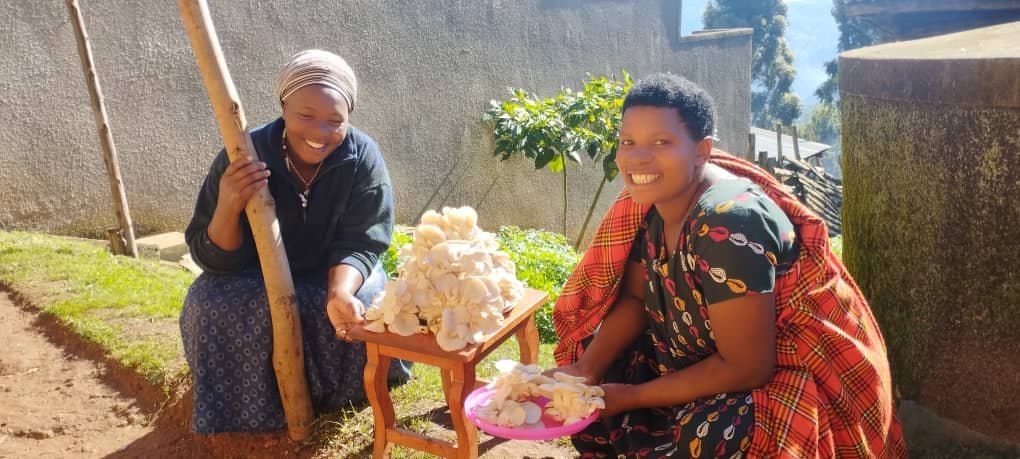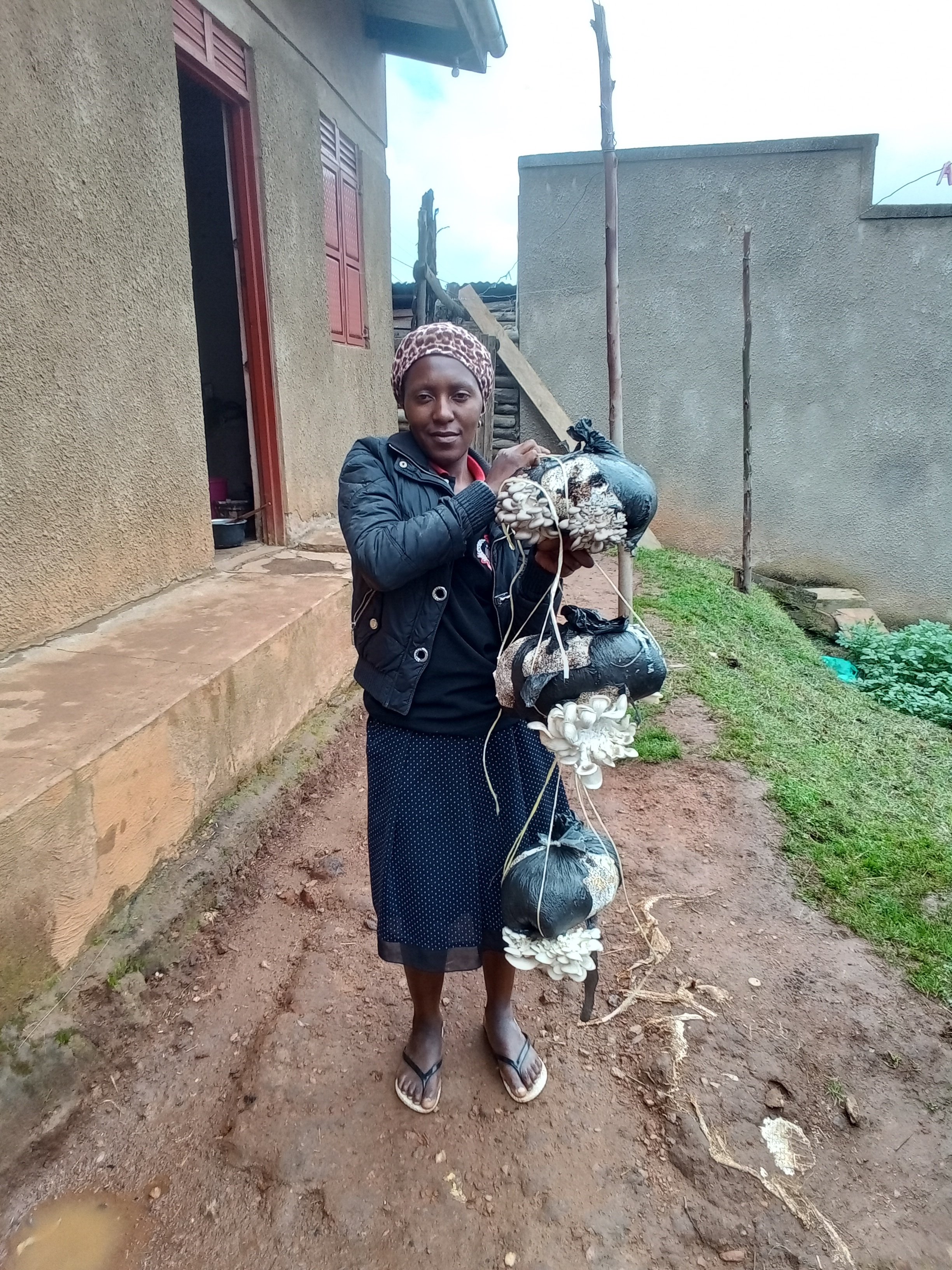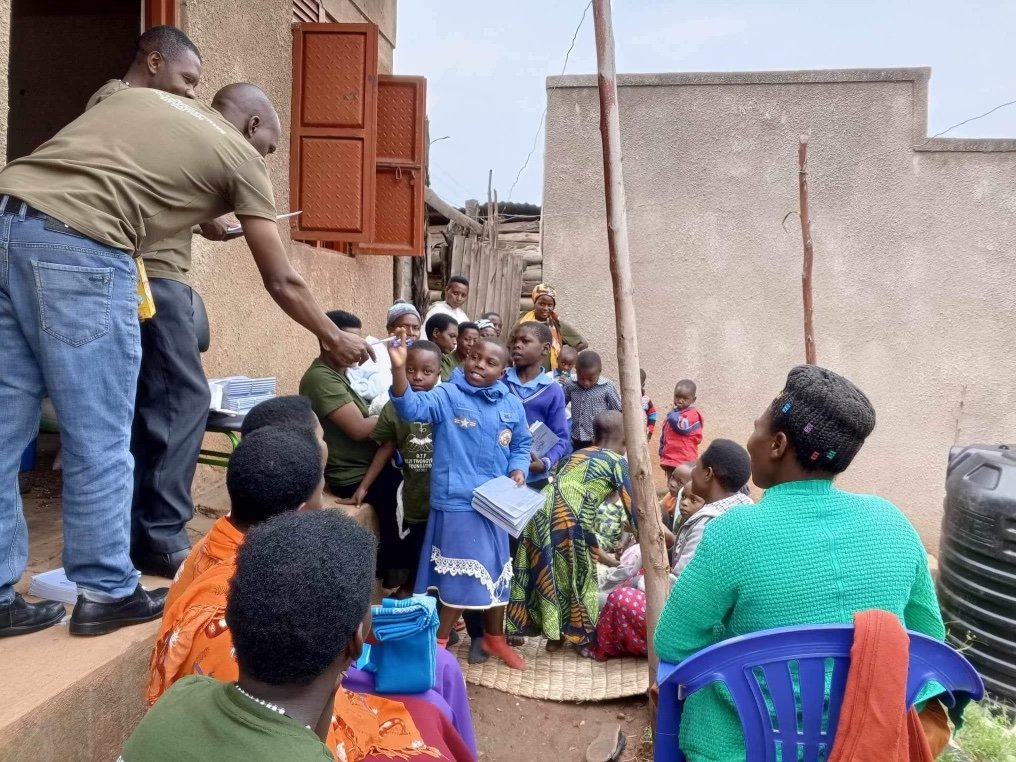
Uplifting Bwindi youths through outreach, education, and community-building.
About RTF
The Reilly Twongyeirwe Foundation was established in 2023 to empower at-risk Ugandan youth.
Our Mission:
Mobilizing, uniting, and strengthening the capacities of caregivers, our mission is to coordinate with orphans, striving to make a positive impact in the lives of young children. Our aim is to support them in realizing their utmost potential, cultivating confidence and compassion. We aspire to nurture individuals who not only possess self-assurance but are also committed to serving their communities.
Featured Initiative
Featured Initiative
Mushroom Cultivation: A Thriving Livelihood in Uganda
In Uganda, the most commonly cultivated mushroom variety is the Oyster mushroom. Produced indoors, these fungi are seen as a magical solution for improving livelihoods, particularly in regions where environmental conditions favor their growth. Since 1995, Oyster mushrooms have been recognized as an Eco Agric product, serving both commercial purposes and livelihood diversification. This initiative has significantly bolstered the resilience of farmers, especially in densely populated areas of Uganda, where it has gained traction among women and youth entrepreneurs.
Mushroom cultivation has swiftly emerged as one of the fastest-growing home-based ventures in Uganda. It stands as a testament to sustainable income generation, painting a vibrant picture across the Ugandan landscape. Many new entrepreneurs have embraced mushroom farming due to its low initial investment requirement and high profitability.
Unlike the past when mushrooms were overshadowed by the availability of wild meats in a balanced diet, they have now become a valuable food resource. This shift in perspective has made mushrooms a staple, suitable for consumption by both the young and the old. Consequently, the cultivation of mushrooms not only ensures a sustainable livelihood but also addresses nutritional needs across diverse age groups, making it an essential practice in Uganda's agricultural landscape.
With our most recent mushroom cultivation profits, we distributed a dozen notebooks, two pens, and two pencils to thirty in-need Bwindi youth.
Our Projects
The Importance of Bwindi Impenetrable National Park
Established in 1991, Bwindi Impenetrable National Park stands as a prominent member of Uganda's national parks, its name "Mubwindi" reflecting the challenging terrain created by dense bamboo and forest vegetation. Situated on the western edge of the Great Rift Valley near the Democratic Republic of Congo border, the park spans elevations from 1160 to 2607 meters above sea level.
Renowned globally for its remarkable biodiversity, Bwindi is the proud custodian of 50% of the world's remaining mountain gorilla population. Designated a UNESCO World Heritage Site in 1994, the park is home to 120 mammal species, 350 bird species, and a rich variety of flora.
At the heart of the RTF's mission is the commitment to cultivating a harmonious relationship between the park's diverse ecosystem and the local communities. Through our initiatives, we strive to instill a deep appreciation for and active protection of these invaluable natural resources. Historically utilized for sustenance and economic endeavors, the park now represents a source of pride and shared responsibility.
The Social Impact
The conservation of biodiversity, particularly in places like Bwindi Impenetrable National Park, can have numerous positive social impacts on the surrounding communities:
1. Employment Opportunities:
Conservation efforts create jobs in various sectors such as tourism, hospitality, park management, and research. Local community members can find employment as tour guides, park rangers, researchers, and in the hospitality industry, leading to increased economic stability.
2. Income Generation:
Tourism, especially eco-tourism activities like gorilla trekking, provides a source of income for local communities. Income generated from tourism can be reinvested in local infrastructure, education, and healthcare, enhancing overall living standards.
3. Education and Awareness:
Conservation projects often include educational programs for local communities. These programs raise awareness about the importance of biodiversity, wildlife conservation, and sustainable living practices. Better education empowers communities and can lead to improved livelihoods.
4. Infrastructure Development:
Revenue generated from tourism and conservation initiatives can be used to improve local infrastructure, including roads, schools, healthcare facilities, and clean water supply systems. Better infrastructure enhances the quality of life for community members.
5. Cultural Preservation:
Conservation efforts often involve respecting and preserving the cultural heritage of local communities. This can include supporting traditional practices, crafts, and festivals. It helps maintain the community's identity and pride in their cultural heritage.
6. Community Empowerment:
Engaging local communities in conservation projects empowers them to actively participate in decision-making processes. Community members are often involved in eco-friendly initiatives, sustainable farming practices, and alternative livelihood programs, enhancing their skills and self-reliance.
7. Improved Healthcare:
Revenue generated from conservation efforts can be directed towards healthcare services. Communities can benefit from better healthcare facilities, access to medicines, and health awareness programs, leading to improved overall health.
8. Reduced Poaching and Illegal Activities:
Conservation efforts often involve community patrols and awareness programs, which can reduce poaching and illegal activities. This not only protects wildlife but also enhances the safety and security of the local population.
9. Social Cohesion and Pride:
Conservation projects can foster a sense of pride and ownership among community members. They become stewards of their natural heritage, promoting a sense of unity and social cohesion within the community.
The Enviromental Impact
Conserving biodiversity, especially in unique habitats like Bwindi Impenetrable National Park, is crucial for several environmental reasons:
1. Habitat Preservation:
Biodiversity conservation safeguards the natural habitat of various species, ensuring that ecosystems remain intact and undisturbed.
2. Carbon Sequestration:
Forested areas like Bwindi play a significant role in absorbing and storing carbon dioxide, helping mitigate climate change and reduce greenhouse gas emissions.
3. Biodiversity Protection:
Conservation efforts protect the diverse array of species within the ecosystem, preventing habitat destruction and safeguarding endangered and rare plants and animals.
4. Ecosystem Services:
Conserved ecosystems provide essential services like pollination, water purification, and soil fertility, benefiting agriculture, human health, and overall ecosystem health.
5. Genetic Diversity:
Preserving a wide range of species helps maintain genetic diversity, which is essential for the long-term adaptability and resilience of ecosystems in the face of changing environmental conditions.
6. Reduced Deforestation:
Conservation projects can reduce deforestation by providing economic alternatives to activities like logging, thus preserving valuable forested areas.
7. Protection of Water Resources:
Intact ecosystems in Bwindi contribute to clean water sources and water regulation, benefiting both local communities and downstream regions.
8. Wildfire Prevention:
Conservation practices can reduce the risk of wildfires, which can be devastating to forests and ecosystems. Preventing wildfires helps maintain healthy, thriving landscapes.
9. Soil Conservation:
Preserving natural ecosystems helps prevent soil erosion, maintaining soil fertility and preventing sedimentation in rivers and lakes.
10. Conservation of Endemic Species:
Conservation efforts protect species found nowhere else in the world, preserving their unique genetic makeup and contributing to global biodiversity.
Meet the Team
-
Amos Twongyeirwe
CO-FOUNDER & EXECUTIVE DIRECTOR
Amos Twongyeirwe found his life’s passion and purpose after realizing the need to help orphans and vulnerable children when he was working as ranger in Bwindi National Park. Amos Twongyeirwe expressed interest in knowing how wildlife and man have been living in harmony in the surrounding areas of Bwindi. In his colloquium, Amos illustrated how the Ugandan Wildlife Authority implemented integrated conservation and development projects that revolve around community development, natural resource regulation, revenue sharing, animal control, conservation education, and tourism development to mitigate the conflicting perspectives of locals and conservationists. Amos dedicated himself to serving the vulnerable children by bringing supplemental aid to the at-risk children and caregivers around Bwindi, Rubanda district, where 15% of the children do not attend school, 30% dropout at grade seven, and few are able to continue to University level. Amos holds a diploma in education secondary, diploma in wild life management, diploma public administration and he is currently perusing degree in public administration. He is currently employed as wild life ranger and successfully runs RTCF in Uganda. As the Director of the NGO Reilly Twongyeirwe Community Foundation, he believes in extending the love of Christ through healthcare and education services, particularly to those who are marginalized or face barriers to accessing essential resources.
-
Tusasiibwe Neverine
ASSISANT EXECUTIVE DIRECTOR & SPONSORSHIP ADMINISTRATOR
Neverine is a public health practitioner with over 5 years of domestic and international experience, with a focus on HIV prevention, reproductive health, substance use disorders, & mental health issues and she is currently doing social work from Uganda Christian University. Her expertise includes program development and management; technical assistance; monitoring and evaluation; partnership development and cross-sector collaboration, and leadership.
Neverine career has included the implementation/management of funded programs and subsequently monitoring. Her experience has spanned work in communities, nonprofit organizations, and a consulting firm.
-

Margaret Reilly
CO-FOUNDER & INTERNATIONAL ADVISOR
Show your support through financial donations or by joining one of our online communities.


